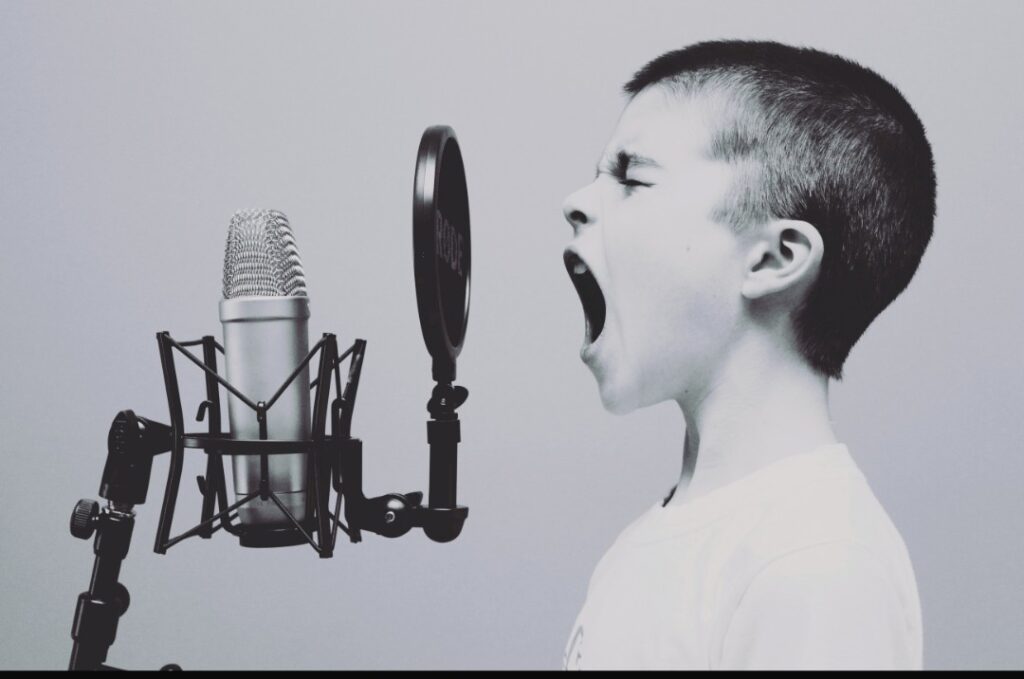There are many challenges which get thrown our way, one of which is when an autistic child is very loud.
In this article we explore why that may be the case and examine what we can do as parents.
Volume challenges and autism
Having a very loud child with autism is quite a common problem.
It’s important however to understand that this loudness is not necessarily a reflection of your child’s behaviour. It is more a case of them trying to cope with a difficult world caused by their condition.
Lets consider how autism can impact a child’s volume dial;
Overwhelmed senses
Autistic children often experience heightened senses that can be overwhelming.
Imagine how a simple noise, like the hum of a refrigerator or the sound of a vacuum cleaner, can be amplified in their world.
When faced with these sensory triggers, they may react by becoming louder as a way to cope.
This heightened response is not a tantrum but a response to sensory input.
It may be that they are trying to drown out surrounding noises as a way to control their environment.
Communication issues
As many will already know, communication struggles can be a hallmark of autism.
Another reason why autistic children may be loud is related to these communication challenges.
An autistic child may find it challenging to express their needs or feelings, or express themselves clearly.
When they are unable to communicate effectively, they may resort to loud vocalisations or increased volume as a way to get their message across.
Expressing emotions
Like all children, autistic children have emotions, and they may struggle to regulate them at times.
When they are excited, anxious, or frustrated, they may become loud to express these feelings.
It’s important to remember that this can be their way of communicating their emotional state.
Hearing problems
Regular hearing checkups are essential for all children, but they are especially crucial for autistic kids.
It may be that an autistic child may be experiencing hearing issues leading to the loudness.
One such cause could be glue ear.
Glue ear occurs when thick or sticky fluid accumulates behind the eardrum in the middle ear.
This accumulation of fluid can lead to several hearing-related issues, particularly in children.
Confusion with social norms
An autistic child being very loud may be down to their lack of awareness of social do’s and dont’s.
These are the unwritten rules of society that most usually adhere to unconsciously. These could be such rules as not singing loudly when someone nearby is on the phone.
Or shouting in the middle of a movie.
Sometimes these social norms can be alien to autistic children and can therefore lead to them being regularly loud at inappropriate points.

What parents can do if their autistic child is very loud
The first step of nearly any solution would be a period of monitoring your child. Take note of when, where and why they are being excessively loud.
Once you have these collated triggers you can set about a plan to address the problem.
Here are some things to consider;
Create a sensory friendly environment
Create a sensory-friendly environment for your child by reducing unnecessary noises.
Consider using noise-canceling headphones or soft earplugs when you’re in noisy settings. Or many parents have had success with indoor tents as a refuge for their child.
Encourage your child to use these tools as well when they feel overwhelmed.
Teach different ways of expression
Help your child identify their emotions and provide them with tools to cope with intense feelings.
This could include sensory toys, or a designated quiet space where they can retreat when they need to calm down.
Also try to find ways in which they can express themselves without being excessively loud.
These methods could include emotion picture cards or basic sign language.
Teach them about social norms
If you can, try to explain to your child in simple language or even through pictures the do’s and dont’s of society.
You could try creating small social stories documenting when it is appropriate to be quiet.
A lot of autistic children learn best through pictures so a small drawn story can help.
Praise appropriate volume levels
Positive reinforcement is a powerful tool when dealing with loudness.
Instead of reacting negatively to your child’s loud outbursts, praise and reward quieter behaviour.
This can motivate your child to use quieter ways to communicate and express themselves.
Whenever your child uses a quieter tone or successfully communicates their needs in a less loud manner, offer clear praise.
This can be in a verbal form, via a small treat, or additional playtime.
Summary – Autistic child is very loud?
Raising an autistic child has its unique set of challenges, and dealing with loudness can be one of them.
However, by understanding the reasons behind this behaviour and implementing effective strategies, it can be improved.
Remember, your child’s loudness is not a reflection of their character but a response to them dealing with the world.
With patience, and the right resources, you can help your child express themselves in ways that are comfortable for them but also others.


My personal experience is that ALL kids are loud. My autistic daughter is challenging in other ways but no louder than my son.
Opposite for me.
My daughter is like a mouse but my autistic son is incredibly loud, all the time.
I am hoping it will pass.